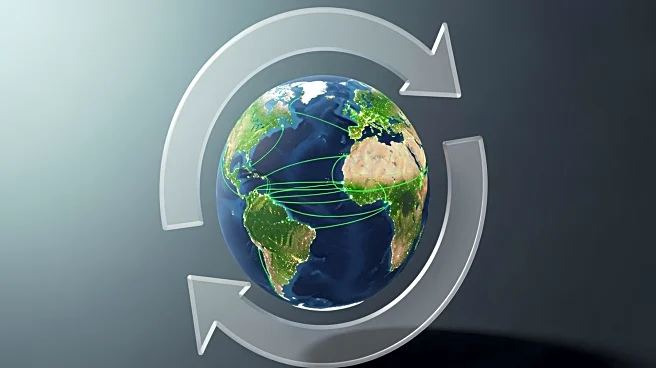What's Happening?
At COP30 in Belém, Brazil, the International Maritime Organization (IMO) is advocating for global regulations to reduce shipping industry emissions. Despite recent setbacks due to pressure from President
Trump and Saudi Arabia, the IMO remains committed to implementing a carbon fee on shipping. The proposed regulations aim to decrease greenhouse gas emissions from shipping fuels and establish a pricing system for emissions. The delay in adopting these regulations highlights the challenges in achieving consensus among nations, but the IMO continues to work towards a solution.
Why It's Important?
Shipping emissions contribute significantly to global greenhouse gas emissions, making the industry a key target for climate action. The proposed carbon fee represents a critical step in reducing these emissions and transitioning to cleaner energy sources. The pushback from major economies like the U.S. underscores the geopolitical complexities in implementing global climate policies. Successful adoption of the fee could set a precedent for other industries and enhance international cooperation in addressing climate change, benefiting both environmental and economic stakeholders.
What's Next?
The IMO plans to continue advocating for the carbon fee and engage with member states to overcome barriers to its adoption. The delay provides an opportunity for further negotiations and adjustments to the proposed framework. The organization aims to finalize the regulations by next year, with hopes of gaining broader support. The ongoing discussions at COP30 will focus on finding common ground and ensuring that the shipping industry contributes to global decarbonization efforts.









